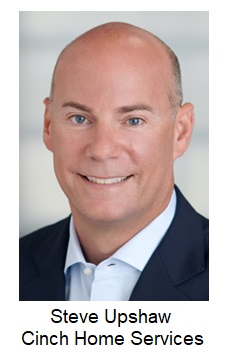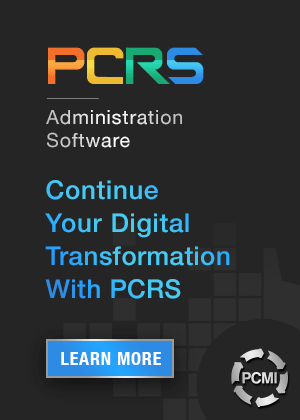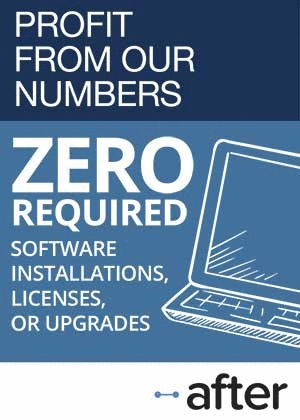October 31, 2019 |

|
ISSN 1550-9214 |
CCHS Changes Name to Cinch Home Services:Cross Country Home Services, a top home warranty provider, has changed its name to highlight its effort to leverage web and mobile technology to improve the customer experience and make its services a cinch to use.To emphasize how easy its protection plans are to use, Cross Country Home Services (CCHS) has changed its name to Cinch Home Services Inc. Along with the company name change, several CCHS subsidiaries and brand names also will consolidate under the Cinch name, including HMS Home Warranty and TotalProtect. 
Cinch CEO Steve Upshaw said the new name was selected after the company went through an assessment process that sought to understand exactly what customers are expecting from a home warranty provider. "People turn to us because they want a high-quality managed service experience," he said. "But they want it done in a way that's easy. They don't want to have to work hard. They want to know that a high-quality service professional is going to show up, whose been vetted to do the right thing, that's backed by a company that's going to make sure they get the job fixed the first time, and with an experience that is hassle-free." The next step was to look at changing the name of the company, and what message the new name would convey. Cinch was selected to reflect that simple, easy-to-use, hassle-free customer experience that the company seeks to provide. And with this new name, Upshaw said, "frankly, you don't need a dictionary to understand who we are and what we stand for." Sending a Message to ConsumersThe name Cross Country Home Services, Upshaw said, didn't send that easy-to-use message to consumers. Cinch Home Services does. "It's time to take our game to the next level," he said. "If we want to continue to be a market leader, and work to extend the value propositions that we know are so enormously important to consumers, we felt it was an absolute necessity to send a message." 
"We believe that this new brand appropriately aligns our forward-thinking strategies and symbolically sends a message to the marketplace that we want to extend our market leadership position and take the industry to the next level when it comes to meeting consumer needs." "We're very proud of our heritage as a 43-year-old business," he said. Yet the company is still growing swiftly. "In the last four years our capabilities have led to our doubling in size." A press release issued to herald the name change said the privately-held company is growing at double the industry-average rate, with annual revenue now approaching $500 million. But the market is evolving, and consumer expectations are changing. "Those expectations, in terms of value and the consumer experience, continue to extend," Upshaw said. "Consumers are looking for more from a home services company such as ourselves. So as we've been evaluating our business over the last several years, it's become increasingly apparent that consumers today expect simple, timely, and quality solutions on the back of an excellent value proposition. But with advancing technology, they also want complete control of the service experience." One way to provide that is to open a self-service portal on the web, so that customers can monitor the status of their claims on a digital dashboard. Another is to integrate with Amazon Alexa, so that customers can use their own voice to see what's covered or to submit a claim. "We felt that rebranding the business sends a message to our associates, end consumers, and business partners, that we are a modern, forward-thinking company that's trying to embrace these solutions," Upshaw added. "The vision of Cinch Home Services is to have a solution that simplifies home life in every household in America. Whether you're a millennial buying your first home or a retired boomer, we all know the inevitable repair/replace and maintenance events are a necessity. And with the growing technology in the home, these needs are becoming increasingly complex and interconnected." Most home warranty providers rely heavily on real estate professionals and others involved in the resale of an existing home to help them sell protection plans to the sellers and/or the buyers, who might otherwise be worried about the cost of an unplanned major repair or replacement of their heating or cooling systems, or some of their laundry or kitchen appliances. Most also sell home warranties direct to consumers, and of course they also encourage existing customers to renew their annual plans every year. Cross Country sells through those channels as well. But what it also does is sell protection plans through partnerships with other types of companies that also have relationships with consumers, such as banks, retailers, and utility companies. And that requires Cinch to take a step into the background, allowing the partner's brand name to assume the starring role. Sears Home Services
Right on the home page of Sears Home Services is a tab for Sears Home Warranty, which offers several levels of coverage for appliances, plumbing, electrical, and HVAC. All plans include one heating system and one cooling system preventive maintenance check every year at no extra charge. The company even offers discounts on oil changes at a nearby Sears Auto Center. Sears of course sells major appliances in its department stores, and also sells extended warranty protection plans for those appliances, which it administers and insures itself. And despite all its recent financial turmoil, it still have an extensive in-house repair capability, and the ability to "roll a truck" when a house call is necessary. The company is perhaps the most vertically-integrated entity in the extended warranty industry, with in-house capabilities at every level of the business: manufacturer, retailer, plan seller, administrator, underwriter, and repair team. But when it came time for Sears to jump into the whole-home warranty business, it partnered with Cross Country Home Services rather than develop its own in-house offering. Behind the scenes, the claims management, the customer portal, and the technician scheduling is all handled by CCHS. But you'd have to look pretty hard through the terms and conditions of the contract to find out that CCHS is there (actually, the named party is HomeSure Services, a Cinch subsidiary). "I'm really proud of what we together with Sears have accomplished," Upshaw said. Despite the financial problems of the parent company, he said Sears Home Services is still doing well. "And together, we've done a remarkable job of being able to meet the needs of consumers." "If you look at our industry historically, it was born out of the real estate sector, as consumers were reselling their homes," Upshaw noted. "That gave birth to the home warranty and home service contract space. And while that's at the roots of our business, over the last decade-plus, we have done a really effective job of building the industry's most diverse distribution model. Where most of our competitors are split between real estate and some form of direct-to-consumer, and while we're doing both of those things, we've built an extraordinary business working through blue-chip companies and accessing their consumers." BBVA USAAnalicia Geisen is the executive vice president and director of insurance products for BBVA USA, a subsidiary of Banco Bilbao Vizcaya Argentaria S.A., Spain's second-largest bank. She oversees not only the sale of auto insurance, travel insurance, life insurance, and even pet insurance by the bank in its branches across seven southern U.S. states, but also the sale of home warranties. And as with Sears, those home warranties are administered by Cinch Home Services. 
Geisen said she sees home warranties as a perfect complement to the bank's home mortgage business. "Our intent with the Cinch product is to help customers protect that property," she said. "The value proposition is to help them protect the assets that we're lending on. We're trying to provide them services and products to help mitigate some potential larger expenses in their monthly budgets, such as if a large A/C went out -- that could be a financial crunch." BBVA USA has been selling Cross Country home warranties for about ten years, Geisen said. The original brand name for the home warranties was TotalProtect, but that has also now changed over to Cinch. "We look for partners such as Cross Country and the products they provide to help make sure that our customers have some good choices when they are looking for products, such as home warranty, to help them protect their assets," she noted. "The relationship has been extremely positive," Geisen said. "We consider it a value-added service for our customers. We have real strong customer feedback from the products." The name change wasn't at all concerning, she said, because the company did such a good job of explaining why it was necessary. "I thought that moving towards Cinch was a real strong message. They've done a good job in their marketing message of the need to change their overall name," she said. Geisen also said that Cross Country, and now Cinch, seems to take the customer feedback it receives very seriously, for instance using it to figure out how to better explain to customers what is and what is not covered by a home warranty. And they also use it to improve the product over time. "To me, that's a sign of a really good partner," she said. With all the customer complaints that seem to plague others in the home warranty industry, there is always going to be a risk that decisions made by Cinch or by one of its affiliated service technicians might reflect badly on BBVA. After all, the customer purchased the protection plan from their local bank branch, even if the name on the contract is Cinch or CCHS. But that doesn't seem to be a problem with Cinch. Geisen said Cinch participates in a vendor risk program that BBVA developed to look after its partners, and how their actions might impact the bank's reputation. "We always worry about reputational risk on any type of third-party product," she said. "Cinch participates with our compliance team, our risk team, and our client experience team on a quarterly basis. And we review things such as claims denials and things that weren't completely covered. We're also partnering with them for things such as call monitoring. So we feel we have a strong engagement team that tries to stay on top of that." TXU Energy
David Hammons is the senior manager of Vistra Solutions at TXU Energy, a retail electricity provider based in the Dallas area. It's a unit of Vistra Energy that sells non-electric products such as thermostats, moving services, homeowners insurance, and home warranties. The home warranties are sold under the TXU brand, but are administered and serviced by Cinch. The actual brand names of the products sold to the public include TXU MyHome Appliances Protect, TXU A/C & Heat Protect, and TXU Surge Protect Ultra. The latter, a plan that protects appliances against lightning strikes, carries a $7.95 monthly fee. A plan that protects just the plumbing is priced at $9.95 a month. The all-inclusive TXU MyHome Protect Ultra plan, which covers heating and cooling, appliances and plumbing, is priced at $43.95 a month, with a $125 per claim deductible. "We felt when we launched in 2012 that it was important to tie the TXU brand to the product and service," he said. "We do the selling and all of the billing, and then Cross Country manages the claims and that side of the business. They manage the field forces, the scheduling, and the call centers." Hammons said TXU is very clear in all its marketing materials and communications with customers that these products and services are provided by a partnership between TXU and Cross Country. It's noted in the welcome kit, and in all the emails sent out as well. "We felt it was important to attach the TXU brand to the product, because we are in effect endorsing it," he added. "We stand behind it. Not all customer experiences are going to be perfect. We know that. But we have a very clear line of communication to the Cross Country team, and do everything within reason to make sure that our customers are cared for." In Texas, as in several other U.S. states, the former electric company monopolies have been split into pieces, with separate entities providing the power generation, the long-haul transmission, and the local distribution networks. TXU provides the latter, and it now competes with many other retail electricity providers to do so, making it very easy for customers to switch brands if they're unhappy. In the home warranty industry, one of the recurring themes in the media coverage is how some customer feels their claim was unfairly denied, or how another customer feels the repair was unreasonably delayed. That negative publicity is obviously going to affect prospective customers as they choose a protection plan for their home. But if this were to happen to a TXU customer, they could also express their dissatisfaction by switching electricity providers. "Electricity is our bread and butter. It's where we make the money," Hammons said. "Products like Cross Country are a value-add that we can offer our customers. And many of them take us up on that, and benefit from it. But knowing that with one bad experience we can lose a customer as an electricity customer is something that we keep an eye on very closely." The name change from Cross Country to Cinch has not yet had much of an effect, Hammons said, because TXU is still working on updating all its literature and documentation to reflect the new name. "We need six to twelve months to cycle through all of that -- to get the information updated," he said. "We will move to the Cinch brand. It's just going to take a bit of time." Hammons said Cross Country has always been focused on delivering value to the customer. For instance, the company launched an online web portal to give customers the ability to track claims and the status of their accounts. They also can provide updates via mobile phone text messages. "So the move to Cinch isn't really a surprise," he said. "I think it's a great brand play. And I think they'll continue to evolve their product portfolio, and their customer experience, to live up to that name." ServiceBenchBack in the February 8, 2018 newsletter, we wrote about how Cross Country had signed up for ServiceBench, a service that helps consumers schedule home repair visits on a single call. The service is very popular with manufacturers, retailers, and service technicians, but was then just beginning to reach out to the home warranty industry. Upshaw said home warranty customers want to be able to call in, explain their problem, schedule a repair visit, and then have that problem fixed on the first try. And as simple as that sounds, it actually takes quite a bit of behind-the-scenes technology to make that happen. For years, ServiceBench has been able to help a consumer schedule a house call during that consumer's initial phone call, rather than taking messages and calling them back with several possibilities. It sounds simple but it isn't, as anyone who's wasted a day waiting for a repairman who never showed can attest. There's no faster way to crater customer satisfaction. "It's been a very successful partnership," Upshaw said. "It was a big part of how we've been able to improve our service experience. Our investment with ServiceBench has been about trying to improve our relationship and our visibility with service professionals. And ServiceBench, with its technical capabilities, has laid an important foundation from which we can extend, to take our service experience to the next level." Investments like these in new technologies to improve the customer experience are central to the Cinch strategy. "Over the last several years, we've been making technology investments and investments in talent -- whether it's training or bringing industry experts into our business -- to make sure that we can continue to move our business forward, to deliver on the promises," Upshaw said. "We know the expectations are high, and frankly the entire industry is challenged by a shortage of technicians, whether you're talking about appliance repair technicians, HVAC, plumbers, electricians, etc. The things that we have been doing over the last couple of years, and the things that we're trying to do that are reflective of this rebrand, are a testament to our commitment to making sure that you don't see those types of headlines about us," he added. And for the most part, while other home warranty companies are singled out by consumer advocates on TV, or sued for fraud by attorneys general, most of the media mentions of CCHS and its partners have been rather positive. "Last year alone, we won six Stevie Awards," Upshaw noted. "I believe we have an unrelenting focus on trying to make sure that we communicate effectively with our customers, that we manage our cycle time -- how quickly we get in a home and solve the problem. Admittedly, we're not perfect. And we have a long way to go in our investments in technology and in improved business processes, including giving consumers more visibility and control. But I believe our success has been borne out of an outstanding network -- we've got thousands of highly-valued service technicians, and we've got a committed organization. We've been doing it a long time. That means we've learned a lot from past mistakes. And we've been pumping in meaningful technology investments to make improvements. And those are paying off." Future PlansUpshaw said the path for Cinch Home Services to meet its long-term vision of having a solution in every home has three components:
On that third point, Upshaw said Cinch has already begun to provide on-demand, customer-pays service calls. He noted the partnership CCHS struck with Buoy Labs last year, which allows homeowners to use the Internet to remotely monitor their water usage, detect leaks, and shut down the water pipes, if necessary. If water leaks or pipe damage is detected and repairs are needed, CCHS and now Cinch will dispatch a licensed plumber to the location. Upshaw said Cinch is also developing home warranty plans with more price flexibility, such as those with much higher deductibles, and those with lower monthly or annual premiums but higher per-call fees. At the other extreme, it is also developing plans with very small deductibles but higher premiums, for those who want to minimize their risk. "The mission is to make sure that we have the widest set of consumer value propositions at diverse price points, and to continue to extend our distribution opportunities, so that we can connect consumers with the plan and service experience that can meet their needs." | |||||||||||||||||||||||||||||||||||||||||||||||||||||||||||||||||||||||||||||||||||||||
| |||||||||||||||||||||||||||||||||||||||||||||||||||||||||||||||||||||||||||||||||||||||






